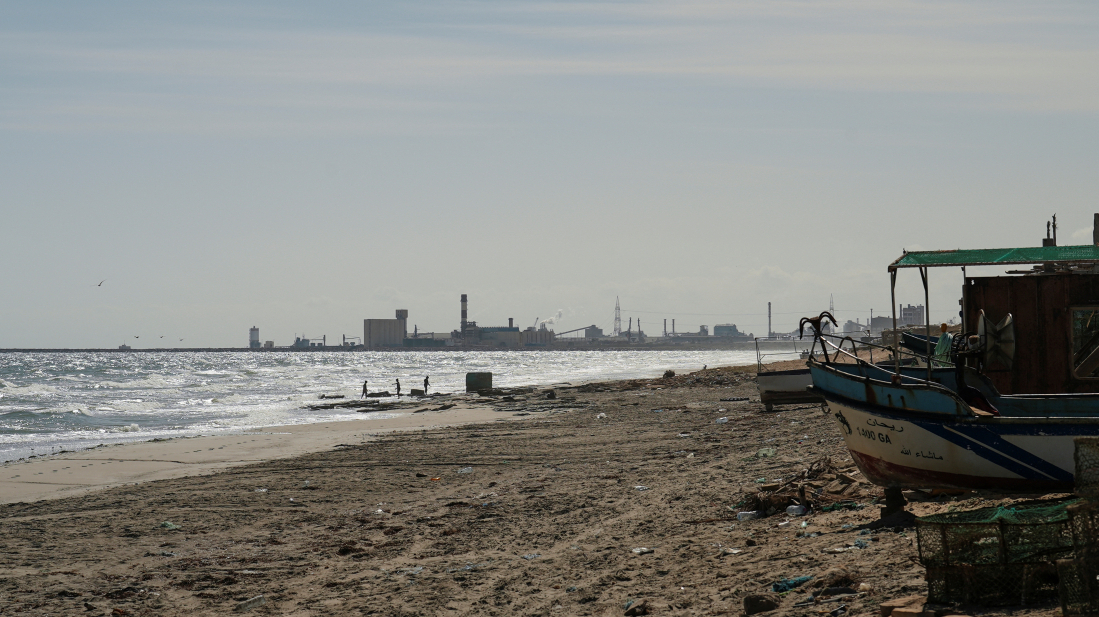Bill Clinton says Trump recalled ‘good times’ with Epstein
Former U.S. President Bill Clinton told lawmakers that President Donald Trump told him he had "some great tim...

A general strike and mass demonstrations paralysed the southern Tunisian city of Gabes on Tuesday, as tens of thousands of people demanded the closure of a state-run chemical plant blamed for a worsening pollution crisis.
The latest wave of environmental and anti-government protests, fuelled by economic hardship and the collapse of public services, marks the most significant challenge yet to President Kais Saied since he consolidated power in 2021.
Shops, schools, markets and cafés were closed as the powerful UGTT labour union called a general strike, bringing daily life in the coastal city to a halt.
Demonstrators carried banners denouncing pollution caused by the CGT phosphate plant, which they say has endangered the health of thousands of residents. Crowds chanted slogans such as “Gabes wants to live” and “dismantle the polluting units.”
Seeking to ease tensions, President Saied recently described the situation in Gabes as an “environmental assassination,” blaming the policies of former governments for high rates of cancer, respiratory illness, and the destruction of local ecosystems.
However, protesters dismissed his remarks, saying the government’s failure to take firm action to shut down the chemical complex was worsening both the health and environmental crises.
Health Minister Mustapha Ferjani said on Monday that a cancer hospital would be built in Gabes to respond to rising cases, though no timeline was given.
The government fears that unrest in Gabes could trigger wider discontent in other regions, where protests over unemployment and water shortages are frequent.
Facing a deep financial crisis, the authorities are struggling to balance public health concerns with phosphate production, one of Tunisia’s key economic resources.
An audit commissioned by CGT in July, and reviewed by Reuters, found serious breaches of national and international regulations. The report said the plant dumps between 14,000 and 15,000 tonnes of phosphogypsum into the Mediterranean every day and emits high levels of ammonia, nitrogen oxides and sulphates.
Environmental groups warn that marine life has been severely damaged, with local fishermen reporting a sharp decline in fish stocks over the past decade, devastating a crucial source of income for the region.
Follow the latest developments and global reaction after the U.S. and Israel launched “major combat operations” in Iran, prompting retaliation from Tehran.
Saudi Arabia’s state oil giant Saudi Aramco closed its Ras Tanura refinery on Monday following an Iranian drone strike, an industry source told Reuters as Tehran retaliated across the Gulf after a U.S.-Israeli attack on Iranian targets over the weekend.
The Kremlin is utilising the recent United States and Israeli military strikes on Iran to validate its ongoing war in Ukraine. Russian officials are pointing to the escalation in the Middle East as evidence that Western nations do not adhere to international rules.
The Middle East crisis intensifies after the deadly attack on the compound of the Supreme Leader of Iran Ali Khamenei on Saturday that killed him, other family members and senior figures. Iran has launched retaliatory strikes on U.S. targets in the region.
Ayatollah Alireza Arafi has moved into a pivotal constitutional role following the death of Supreme Leader Ayatollah Ali Khamenei, becoming the clerical member of Iran’s temporary leadership council under Article 111 of the Constitution of the Islamic Republic of Iran.
The death toll from heavy rains and flooding in Brazil’s Minas Gerais state has risen to 46, authorities said, with 21 people still reported missing. The storms triggered landslides and widespread flooding, displacing thousands across Juiz de Fora and Uba.
The administration of U.S. President Donald Trump on Thursday (12 February) announced the repeal of a scientific finding that greenhouse gas emissions endanger human health, and eliminated federal tailpipe emissions standards for cars and trucks.
Tropical Cyclone Gezani has killed at least 31 people and left four others missing after tearing through eastern Madagascar, the government said on Wednesday, with the island nation’s second-largest city bearing the brunt of the destruction.
Rivers and reservoirs across Spain and Portugal were on the verge of overflowing on Wednesday as a new weather front pounded the Iberian peninsula, compounding damage from last week's Storm Kristin.
Morocco has evacuated more than 100,000 people from four provinces after heavy rainfall triggered flash floods across several northern regions, the Interior Ministry said on Wednesday.
You can download the AnewZ application from Play Store and the App Store.

What is your opinion on this topic?
Leave the first comment